
Oxford Dictionary of Physics

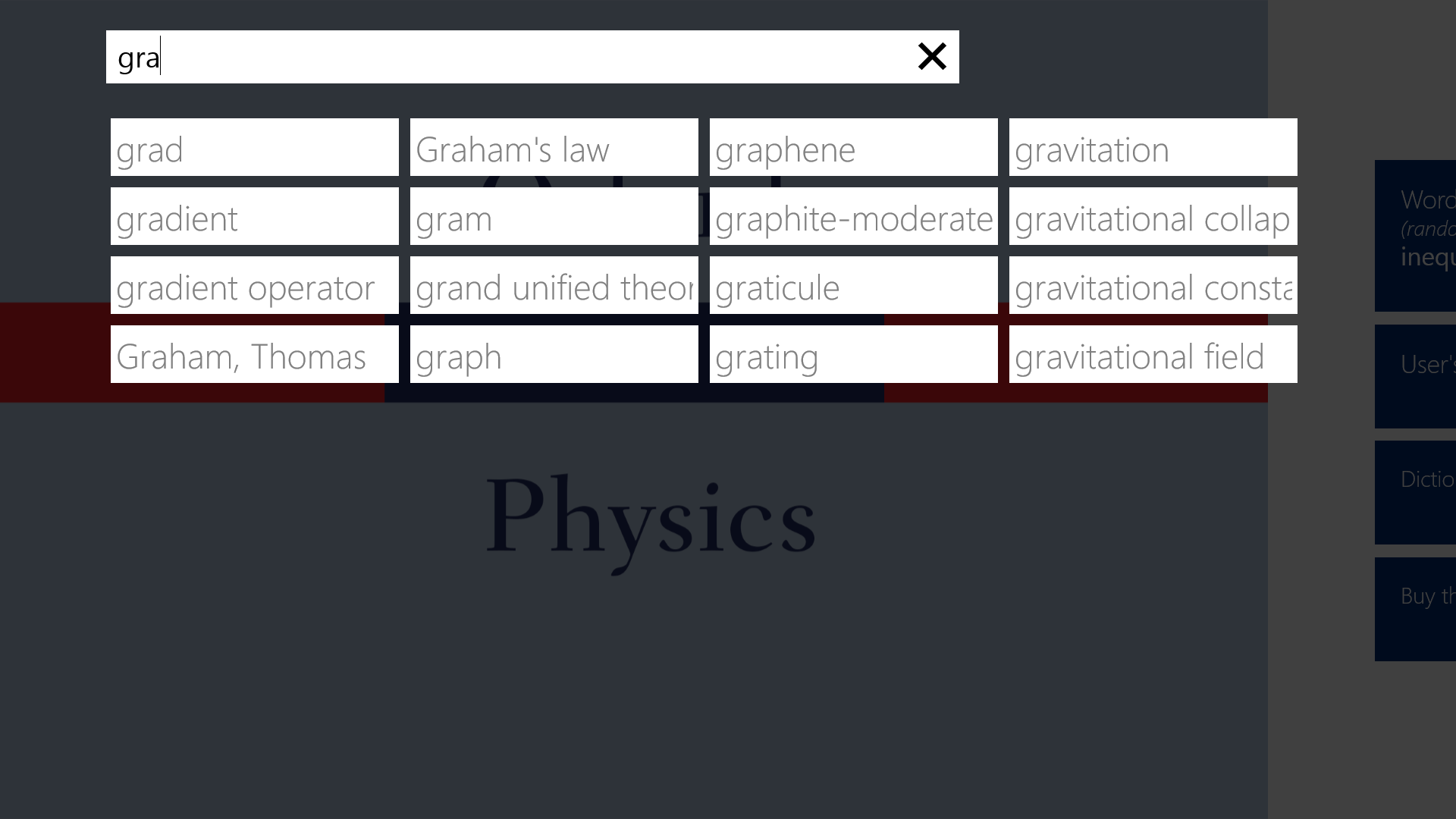
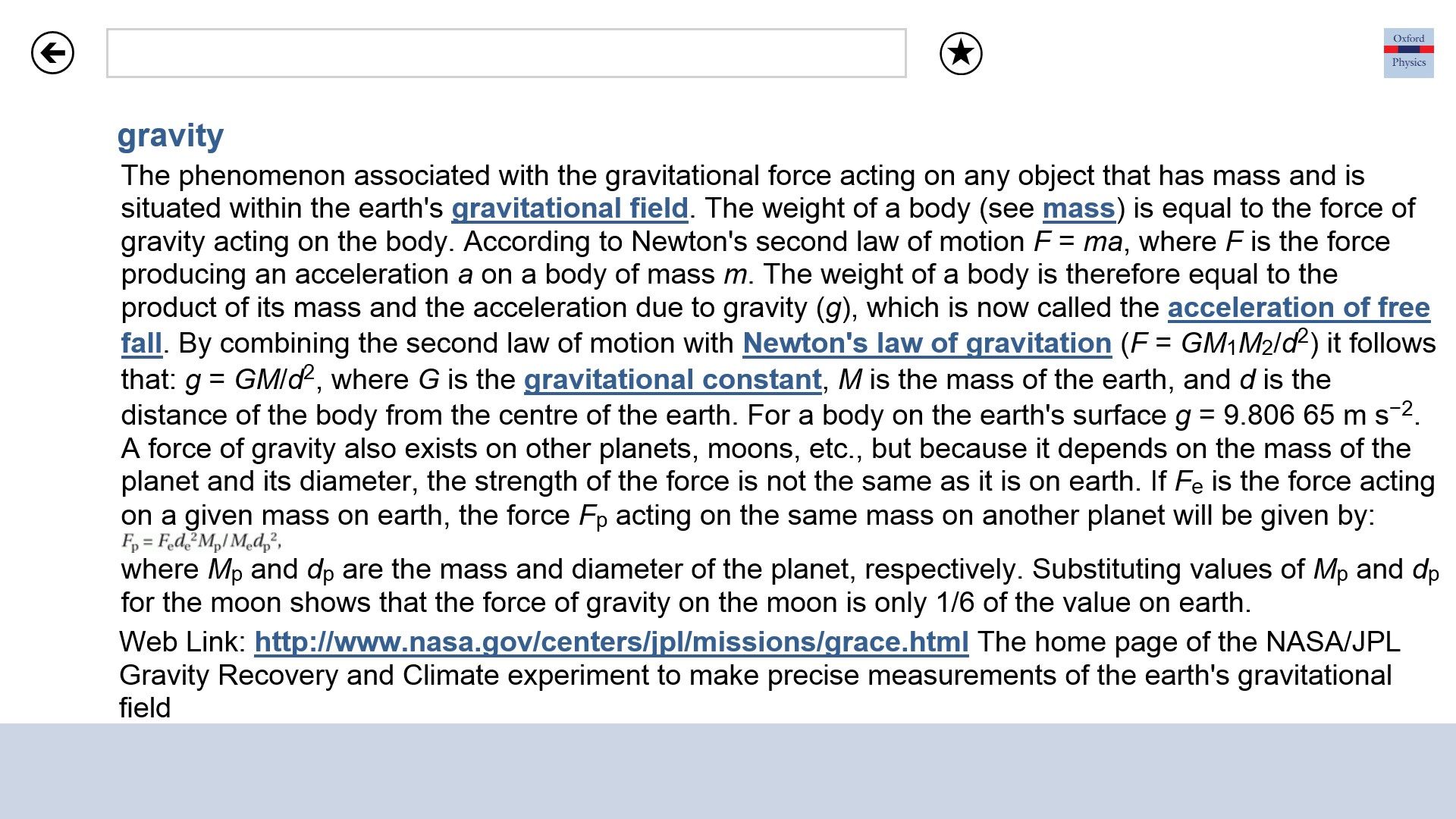
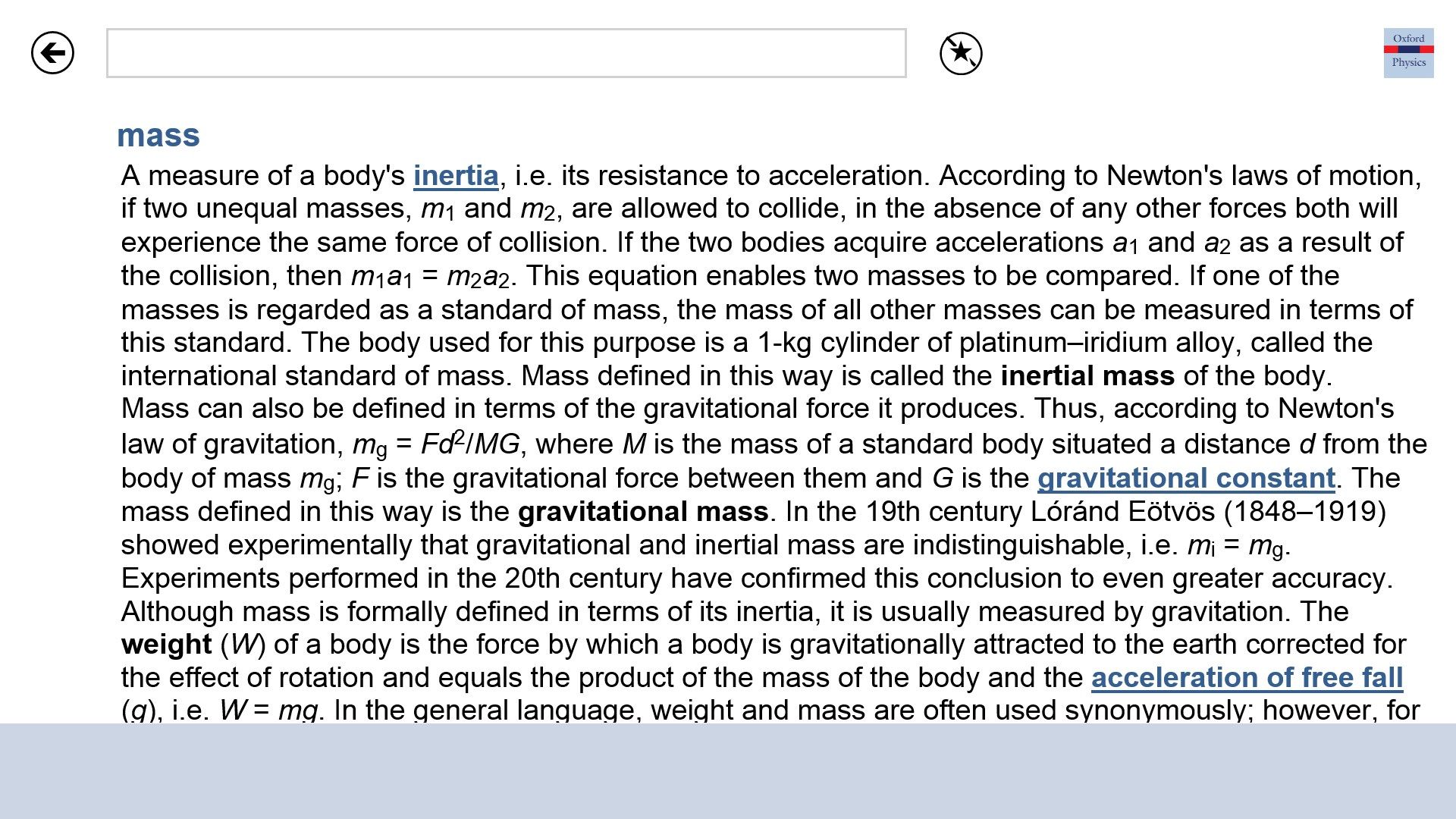
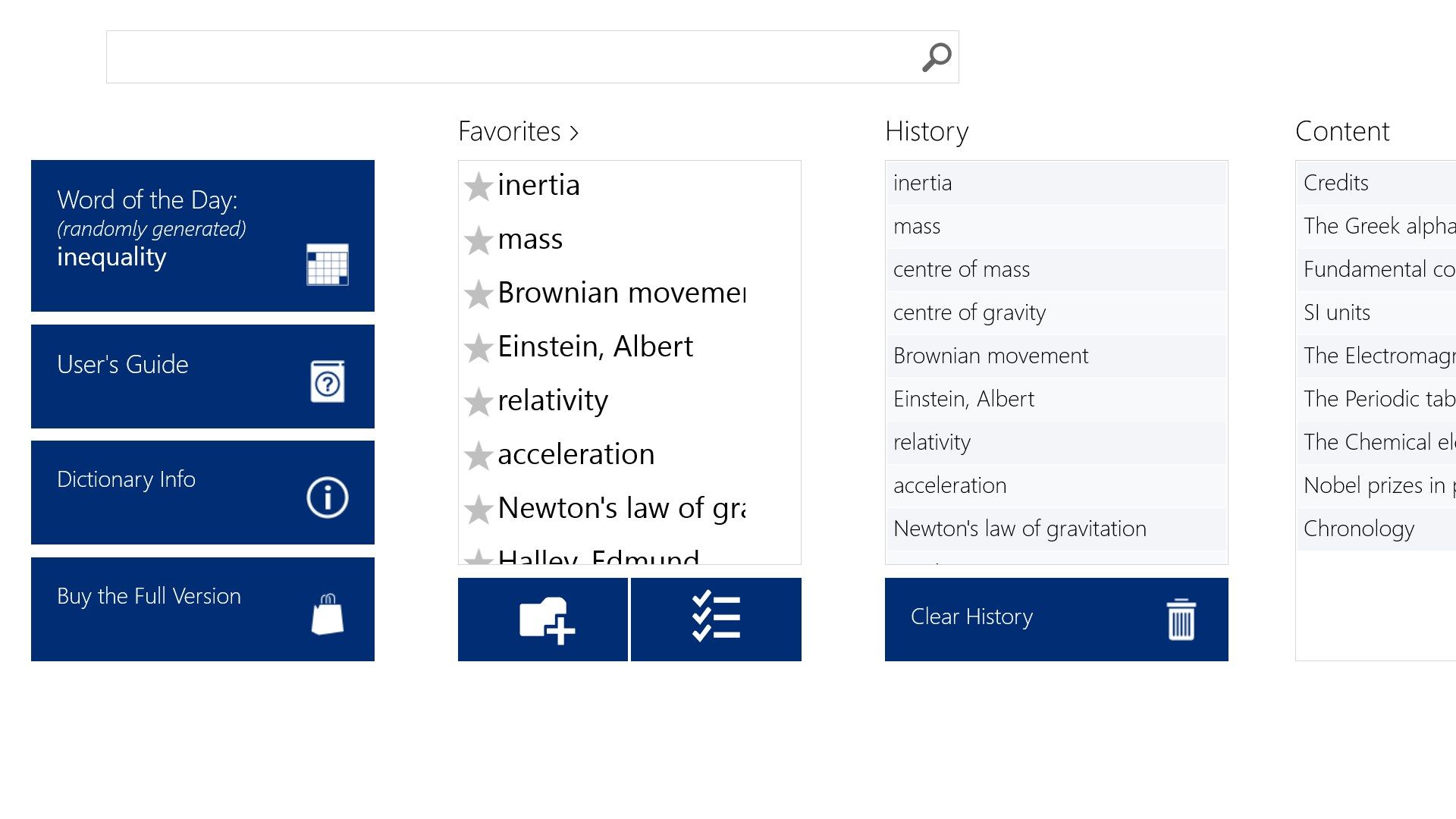
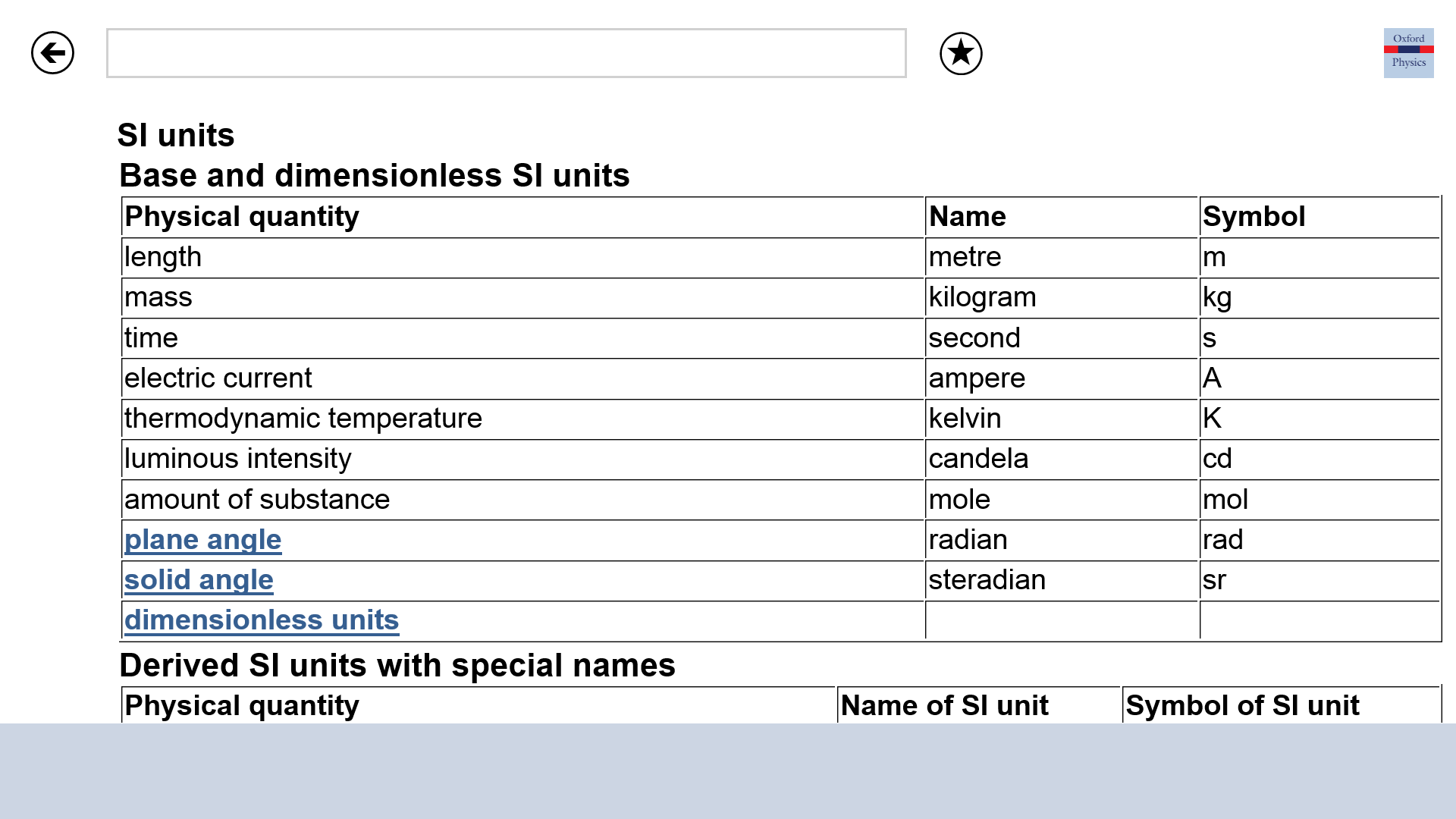
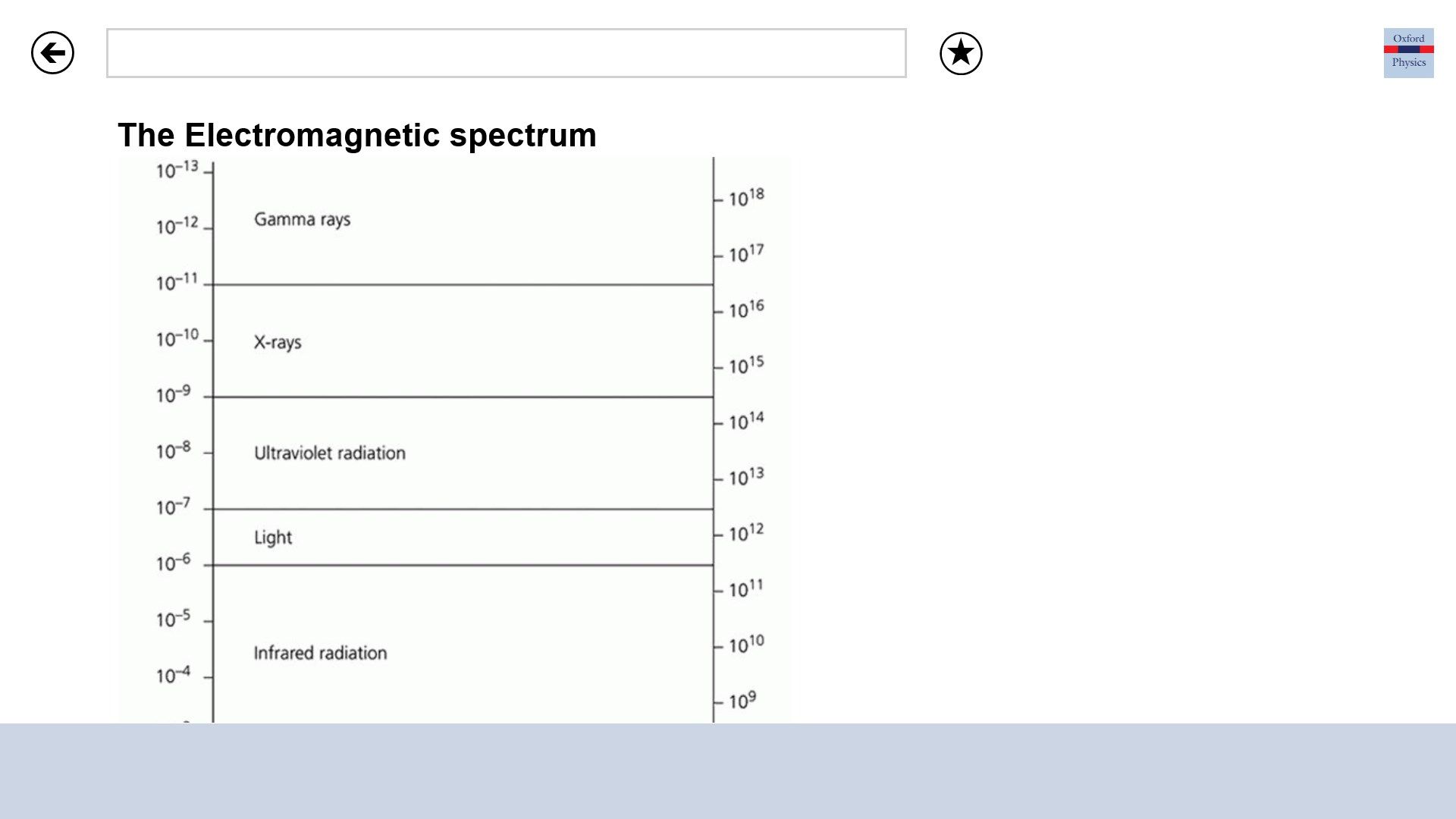
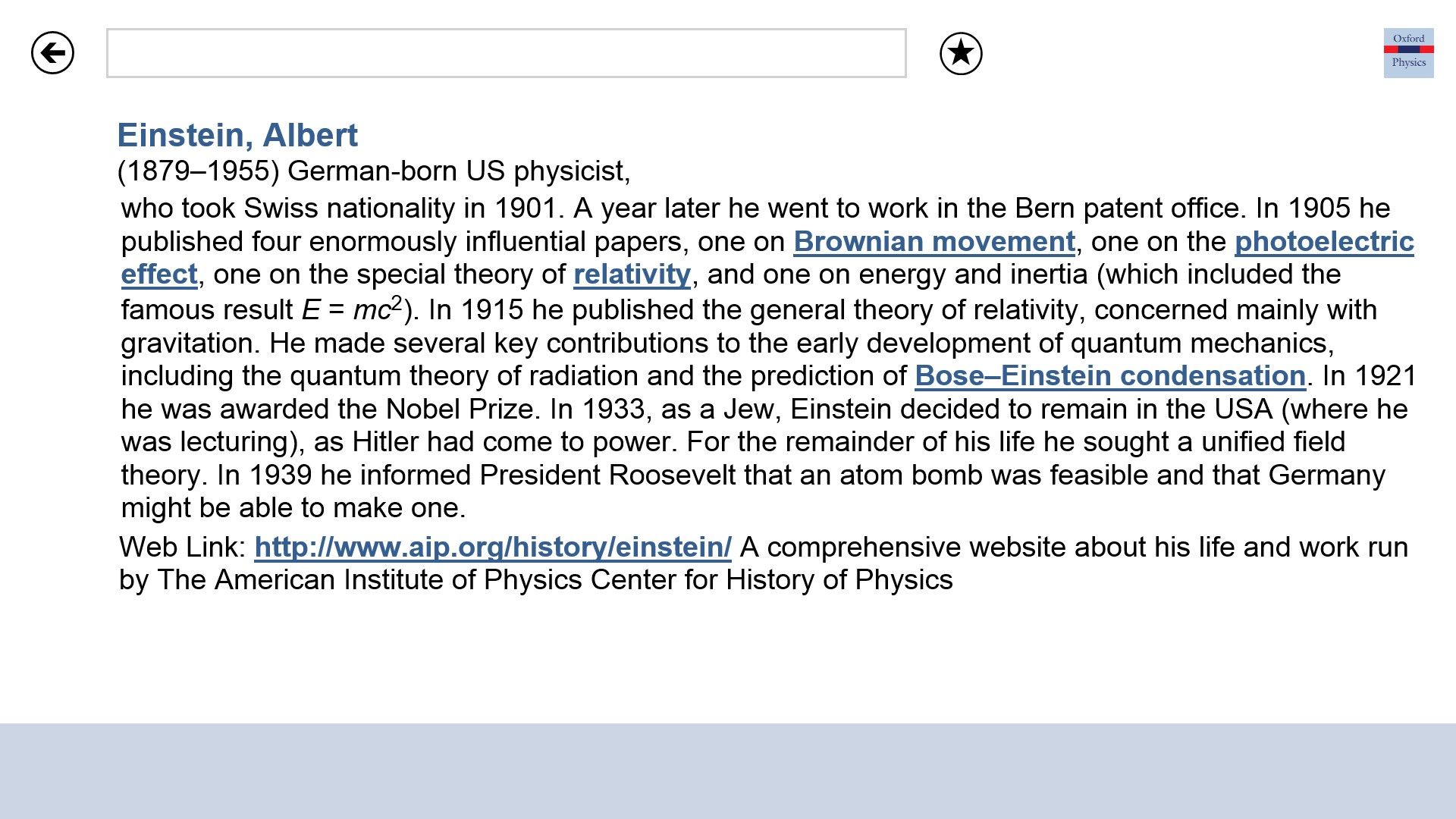
App details
About Oxford Dictionary of Physics
The popular Oxford Dictionary of Physics contains over 3,800 entries covering all commonly encountered physics terms and concepts, as well as terms from the related fields of astronomy, astrophysics, and physical chemistry. You’ll also find expanded coverage in areas including applied physics, statistical distributions, polymers, and nanoscience.
Illustrated with over 120 diagrams, graphs, and tables, feature entries also provide in-depth analysis of key topics such as crystal defects, magnetic resonance imaging, and the solar system. Ideal for students of physics at the undergraduate and A-Level, as well as students of related science subjects. Also valuable for professionals and for anyone who comes into contact with physics terms and concepts.
A search tool
Featuring autocomplete search to help you find words quickly by seeing search predictions that might be similar to the search terms you’re typing. The search also allows various search options as:
- A ‘fuzzy filter’ when you are not sure of the correct spelling of a word
- A ‘keyword’ search for finding key words within compound words
- A wild card search function (‘*’ or ‘?’) which can replace a letter or entire parts of a word.
A learning tool
The dictionary app includes a number of features which help you to grow your vocabulary further:
- A ‘Favorites’ feature allows you to create your own categories and lists of words from the extensive library, which includes all cross-curriculum words
- History list to help you easily review the last visited words.
- See words in context with example sentences
A mobile dictionary application from MobiSystems with content from Oxford University Press.